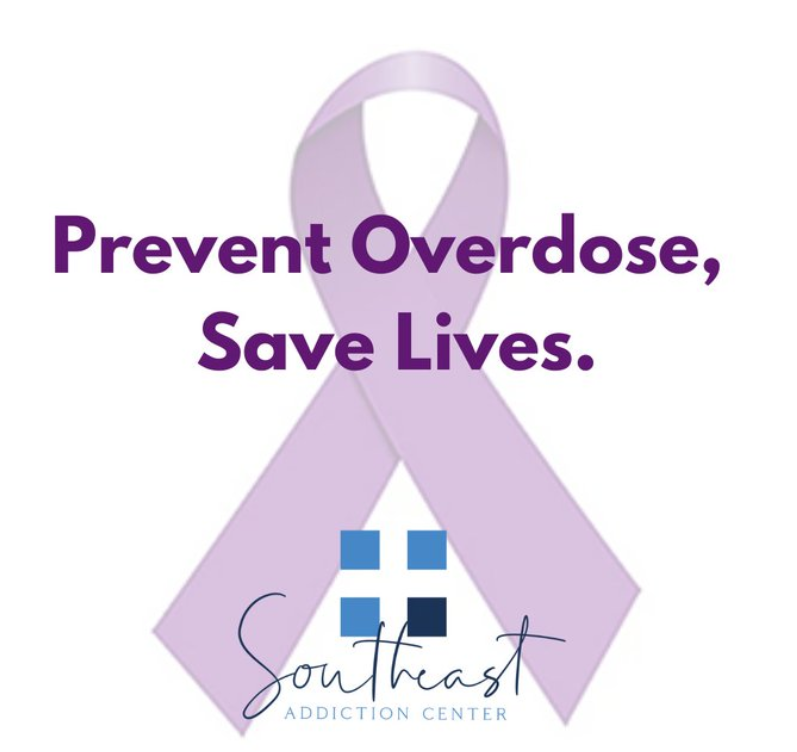Opiate Detox: Rapid Opiate Detox: Learn How to Detoxify Quickly
Understanding Opiate Withdrawal: An Overview

What to Expect
Opiate detox & withdrawal is a difficult and often uncomfortable process that occurs when someone who has been using opioids stops or reduces their intake. Opioids, such as heroin, oxycodone, hydrocodone, and codeine bind to opioid receptors in the brain and produce pain relief and feelings of euphoria.
When someone becomes dependent on opiates, their body adapts to the presence of these drugs. Over time, the brain’s natural production of endorphins (natural painkillers) decreases because it relies on the external supply from opiates. When opiate use is suddenly stopped or reduced significantly, the body goes into withdrawal as it tries to readjust its chemical balance.
The science behind why opiate withdrawal happens lies in how our brains adapt to prolonged exposure to these substances. The locus coeruleus region in our brainstem plays a crucial role in regulating emotions and physical responses such as heart rate and blood pressure.
Chronic opiate use suppresses activity in this region over time. During withdrawal, when there are no longer enough opiates present to suppress activity in the locus coeruleus adequately, it becomes hyperactive.
This leads to an increase in noradrenaline release throughout the body which causes many of the symptoms associated with opiate withdrawal.
Common symptoms experienced during opioid detoxification can vary depending on factors such as duration of drug use and dosage but may include:
- Nausea
- Vomiting
- Diarrhea
- Abdominal cramps
- Muscle aches
- Sweating
- Chills
- Goosebumps
- Anxiety
- Restlessness
The timeline for opioid detox can also differ from person to person but generally follows a similar pattern:
- Within 6-12 hours after stopping or reducing intake, symptoms may start appearing including anxiety restlessness muscle aches.
- – Within 24-48 hours, symptoms typically peak intensity individuals often experience nausea vomiting diarrhea abdominal cramps.
- – After about 72 hours physical symptoms begin subsiding psychological symptoms anxiety depression may persist for several weeks.
It’s important to note that opioid detox can be incredibly challenging both physically & mentally. Seeking professional help during this time is crucial for a safe & successful recovery journey.
The Detox Process: What to Expect
The Opiate Withdrawal and Detox Process

When it comes to overcoming opiate addiction, the detox process is a crucial first step. Detoxification, or detox for short, refers to the rapid removal of opiates from the body.
1. What to Expect During Opiate Withdrawal: The opiate withdrawal timeline typically involves several stages as your body adjusts to being without opiates:
- Stage 1: Onset of Withdrawal Symptoms – Within just a few hours after your last dose, you may start experiencing mild symptoms such as anxiety and restlessness. – These initial symptoms are often followed by more intense physical discomfort like muscle aches and nausea.
- – Stage 2: Peak Withdrawal Symptoms – Within one to three days after stopping opiate use, withdrawal symptoms usually reach their peak. – This stage is characterized by severe cravings for opiates along with flu-like symptoms such as sweating, chills, and diarrhea.
- – Stage 3: Gradual Improvement – After about five to seven days since your last dose, most physical withdrawal symptoms begin to subside. – However, psychological cravings may persist for weeks or even months afterward.
2. The Importance of Medical Professionals in Opiate Detox:
Detoxing from opiates can be challenging both physically and mentally. That’s why having medical professionals involved in your detox journey is essential. They provide vital support throughout the process:
- – Medical Assessment and Monitoring: – Healthcare providers will assess your overall health condition before starting detox. – Throughout the process, they will monitor vital signs such as blood pressure and heart rate regularly.
- – Medication-Assisted Treatment (MAT): – MAT involves using pharmaceuticals approved by the FDA that help alleviate withdrawal symptoms and reduce cravings. – Commonly used medications include methadone or buprenorphine/naloxone (Suboxone).
- – Emotional Support and Counseling: – Medical professionals can provide emotional support during detox, helping you cope with the challenges that arise. – They may also offer counseling services to address any underlying psychological issues contributing to addiction.
3. Potential Complications During Opiate Detox:
Detoxing from opiates can sometimes lead to complications. It’s important to be aware of these potential risks:
- – Dehydration: Withdrawal symptoms such as sweating and diarrhea can cause dehydration. Medical professionals will ensure you stay hydrated throughout the process.
- – Nutritional Deficiencies: Loss of appetite during withdrawal may result in inadequate nutrition. Healthcare providers may recommend a balanced diet or supplements if necessary.
In conclusion, understanding what happens during opiate withdrawals is very important when treating an opioid dependence disorder because it helps people understand what they might experience while going through this treatment program at our center near Franklin & Brentwood TN.

The Importance of Professional Help During Detox
Why Professional Help is Vital for Opiate Detox
When it comes to opioid detoxification, seeking professional help is crucial for a successful and safe recovery. Attempting self-detox can pose serious risks, making the guidance of medical experts essential during this process. Here’s why professional help is so important and the benefits of medically supervised detox.
- Risks Associated with Self-Detox: – Withdrawal symptoms can be very severe and challenging to manage without medical assistance. – Without proper medical supervision, complications such as dehydration or electrolyte imbalances can arise. – The risk of relapse is higher when attempting self-detox due to intense cravings experienced during withdrawal.
- Benefits of Medically Supervised Detox: – Medical professionals have extensive knowledge and experience in effectively managing withdrawal symptoms. – They can provide medications that alleviate discomfort and reduce cravings, making the detox process more bearable. – Monitoring vital signs ensures safety throughout the entire detoxification period. It’s important to understand that opioid addiction affects both physical and psychological aspects of an individual’s life. Seeking professional help allows for comprehensive care addressing all these areas. By choosing a reputable detox facility staffed by trained medical professionals, you gain access to specialized treatment plans tailored specifically to your needs. These plans take into account factors such as your overall health condition, substance abuse history, and any co-occurring mental health disorders.
- Factors to Consider When Choosing a Detox Facility: – Accreditation: Ensure that the facility has appropriate certifications from recognized organizations indicating their adherence to quality standards. – Staff Credentials: Verify that the medical professionals overseeing your detoxification process are licensed and experienced in addiction medicine or related fields. – Treatment Approaches: Research different facilities’ approaches towards opiate detoxification; some may offer alternative therapies or holistic treatments in addition to medical interventions. – Continuum of Care: Look for facilities that provide a seamless transition from detoxification to further treatment, such as residential rehab or outpatient programs. Questions to Ask Potential Facilities:
What is the staff-to-patient ratio during rapid? - How do you manage withdrawal symptoms and cravings?
- Do you offer any additional support services like counseling or therapy? How did previous patients who have successfully completed dope sickness at your facility?
Personalized treatment plans are crucial during opiate withdrawals. Each individual’s journey is unique ,and having a tailored approach increases chances of successful recovery.
Choosing right program involves considering factors like accreditation, staff credentials, treatment approaches, and continuity care. By seeking professional assistance individuals embark on safe effective path towards sobriety.

Choosing the Right Opiate Detox Facility
Selecting the Best Detox Facility for Opiate Withdrawal Choosing the right detox facility for opioid withdrawal is a critical decision that can significantly impact your recovery journey.
To ensure you make the best choice, consider these important factors:
- 1. Accreditation and Licensing: It’s essential to choose a detox facility that is accredited and licensed by relevant authorities. This guarantees that they meet high standards of care and follow best practices in addiction treatment.
- Medical Staff Expertise: Look for a detox facility with experienced medical professionals who specialize in addiction medicine. They should have extensive knowledge of opiate withdrawal symptoms, medications, and treatment protocols.
- Treatment Approaches: Different facilities may offer various approaches to detoxification, such as rapid or gradual tapering methods or medication-assisted treatment (MAT). Consider which approach aligns with your preferences and needs.
- Continuum of Care: A good detox facility will provide comprehensive care beyond just the initial withdrawal phase. Look for programs that offer counseling, therapy, support groups, and aftercare planning to help you maintain sobriety long-term.
- Personalized Treatment Plans: Each individual’s experience with opiate withdrawal is unique, so it’s crucial to find a facility that offers personalized treatment plans tailored specifically to your needs.
- Location and Amenities: Consider whether you prefer a local detox center close to home or if traveling elsewhere would be more beneficial for your recovery process. Additionally, take into account any specific amenities or accommodations that are important to you during this time.

Life After Opiate Detox: Maintaining Sobriety
Completing the detox process is a crucial first step, but maintaining sobriety is an ongoing journey. Here are some key points to consider when navigating life after detox:
- 1. The Role of Aftercare in Maintaining Sobriety: – Aftercare provides ongoing support and treatment to address underlying issues and prevent relapse.
- 2. Different Types of Aftercare Options: – Outpatient Programs: Live at home while attending therapy sessions and support groups. – Sober Living Homes: Structured residential facilities with peer support. – 12-Step Programs: Fellowship, guidance, and accountability through renowned programs like AA or NA. – Individual Therapy: One-on-one sessions to address specific challenges.
- 3. The Importance of a Support Network: – Building and maintaining a strong support network is essential for long-term sobriety.
- 4. Taking Care of Your Physical Health: – Regular exercise improves physical health, reduces stress levels, and boosts mood. – Eating nutritious meals supports overall well-being by providing essential nutrients needed for optimal brain function.
- 5. Developing Healthy Coping Mechanisms: – Learning healthy ways to cope with stressors without turning to drugs or alcohol is crucial for sustained sobriety.
- 6. Avoiding Triggers and High-Risk Situations: – Identifying triggers that may lead to relapse is an important part of maintaining sobriety. Remember, maintaining sobriety is a lifelong commitment that comes with immeasurable rewards. With the right support system and dedication to self-care, you can achieve lasting sobriety and embrace a brighter future. If you or someone you know needs help with addiction recovery near Nashville, TN visit our blog at About-us-FAQ. We are here to support you every step of the way on your path to recovery.

Taking the First Step: Reach Out for Opiate Withdrawal Help
Seeking Help for Opiate Addiction: Your First Step Towards Recovery
Seeking help for opioid addiction is not a weakness, but a display of strength and determination.
By reaching out, you take control of your life and commit to change. Find support at local treatment centers or join support groups like Narcotics Anonymous or SMART Recovery.
Online resources like SAMHSA can also provide information on treatment options. Confidentiality is prioritized in reputable detox facilities, ensuring your journey remains private.
Don’t hesitate – take the first step today towards personalized care and a life free from opiates.
